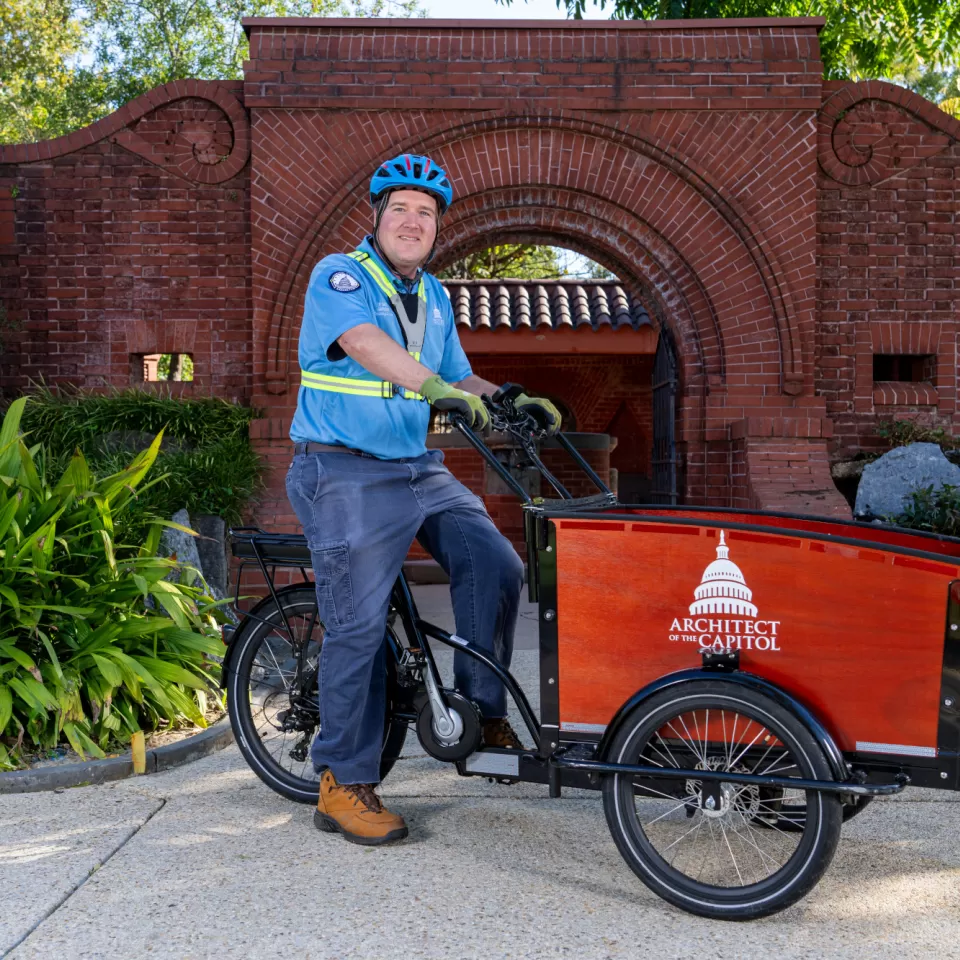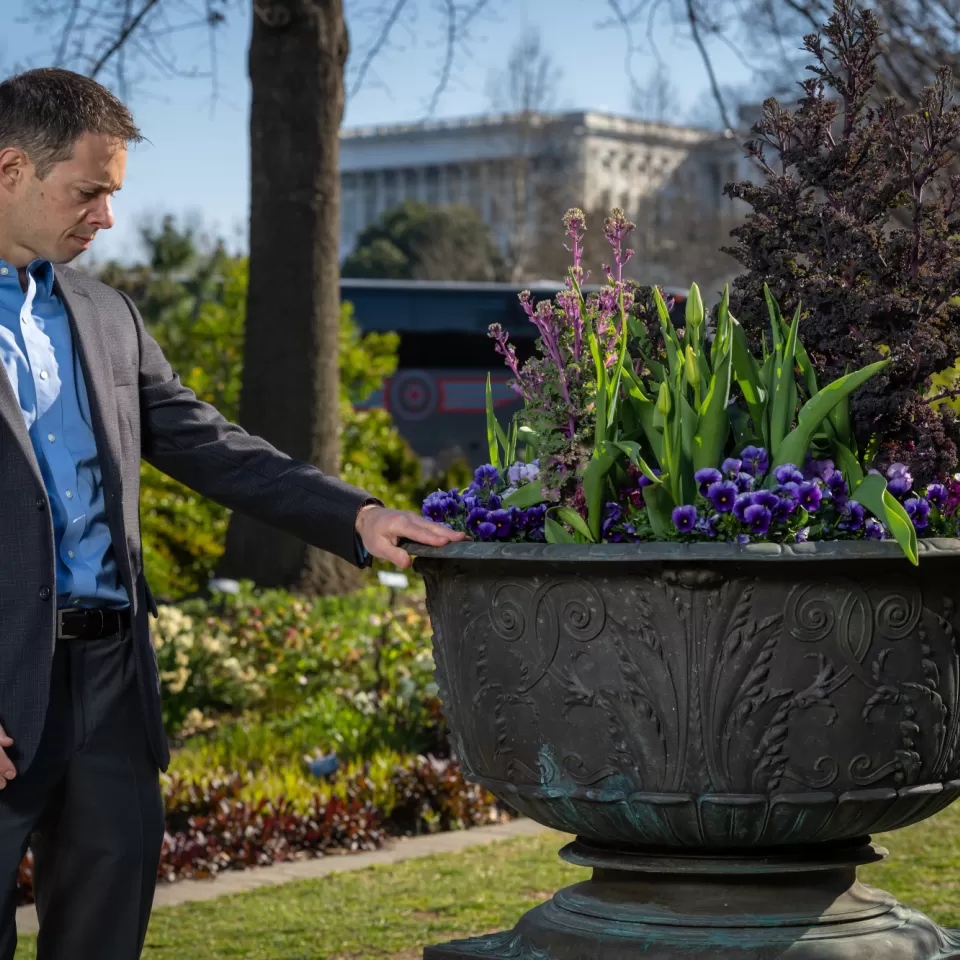Our Stories
Recent Articles
Behind the Scenes
Embracing a Vintage Electric Cargo Tricycle for Greener Gardening
This innovative mode of transportation allows the dedicated gardening staff to move throughout the historic grounds of the U.S. Capitol with ease, all while carrying up to an impressive 300 pounds of gardening tools and horticultural materials.
Behind the Scenes
Leaves On, Leaves Off: Capitol Grounds Works Through the Winter
In the bleak winter, when most Washingtonians are looking to stay indoors, the Architect of the Capitol (AOC) Capitol Grounds and Arboretum team still spends a lot of time outside.
Behind the Scenes
Summer Interns Gain Experience for Future Seasons of Their Careers
From carpentry and photography to clerking and gardening, the AOC internship program exposes students to a host of opportunities within the federal government.
Behind the Scenes
A Career Fusing Art, Design and Plants
Nick Nelson combines diverse passions into a landscape architecture career.










Comments
An engaging piece. Mr. Toner is a credit to the AOC and to his profession!
I feel very fortunate to have seen many incredible Library collection items in person, and I'm grateful to the AOC staff working so hard and professionally to help preserve America's treasures!
Add new comment